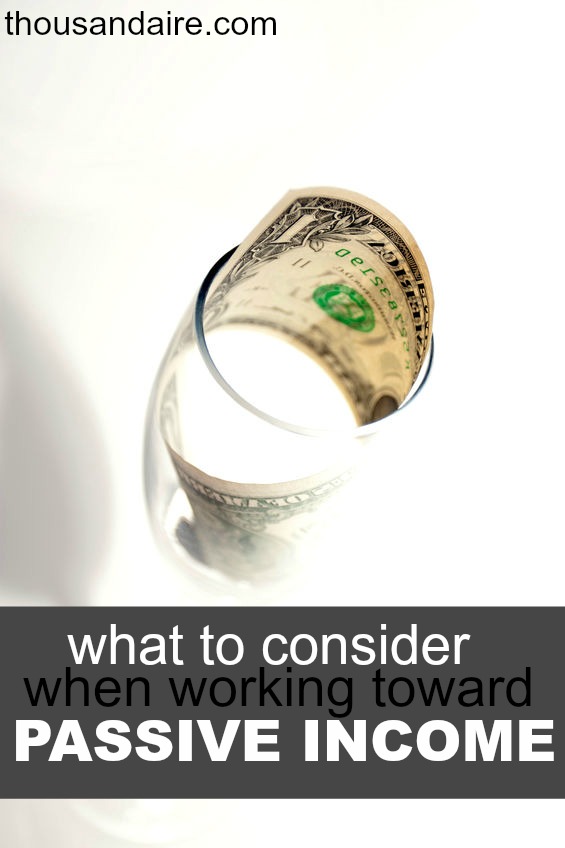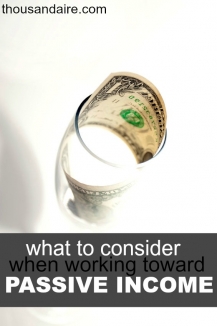
Of course, it is possible, through careful planning, to arrange for automatic income. Retirement planning is based on that premise. But what about those of us who would like to earn passive income before we retire? Advice on the subject is so plentiful as to be ubiquitous, and frankly, most of it is fairly obvious. Here are a few observations of my own.
You may have to expand your concept of “passive”
Rent is a classic example of passive income and one that illustrates some of the important points on the subject. I have personal experience with this one, and it is not an experience I am anxious to repeat.
Rental property is an asset that must be maintained, and occupied, in order to keep earning money for you. And maintenance and occupancy are hard work, it turns out. Furthermore, if you don’t start with a sound plan (my rental income experience was reactionary to a crashing real estate market), you may find that your returns are less than spectacular, Even less than zero, some months.
That’s not to say that it doesn’t work for lots of folks. Temperamentally speaking, I am spectacularly unsuited to the role of landlord. But those with a well-thought-out plan, solid financials on the property or properties in question (i.e. rents that outpace the costs involved), and room in the budget to outsource caretaking and tenant-seeking functions can and do enjoy great success in this endeavor. So what’s the point of my story? There are a couple.
- Passive income opportunities are not one size fits all. And all are not equally suited to a particular option.
- Unless you are starting out with a great deal of money, many passive income sources do not start out that way. In order to truly make money without lifting a finger, you need to be able to outsource and make sure that the money you pay to maintain your property/website/vending machine business doesn’t cut into your margins to the point that the investment is no longer worth your time. If these conditions don’t apply, you may have income, but it certainly won’t be passive.
Of course, that doesn’t mean that an option like this isn’t for you. Being in possession of a strong work ethic, I applaud and admire industry. Just make sure that you’re investing your sweat equity wisely, and understand that truly passive income may not come until later.
Investing for income
Of course, you always have the option to put your money to work for you in the market. Most of us are doing that anyway, saving for retirement and other goals. But if you’re looking to use some of your nest egg for current income, here are some considerations.
- Pick a mutual fund or ETF for truly passive income. Researching individual securities is a lot more work.
- Designate a pool of money specifically for income. It seems obvious, but it is important to consider that the money you designate will no longer be growing, which should be factored into your long term planning.
- Be realistic about how much you can earn. A consistent interest rate or dividend of 6%, or less realistically, 10% sounds like a lot until you consider that $200,000 would get you $12,000-$20,000 per year. Living off of your interest requires more money than you might think.
- If you’re withdrawing all of your earnings, be prepared to see your principal lose value. Consider reinvesting enough to keep pace with inflation.
Make it worthwhile
The most sensible advice I’ve ever been given on this subject is to pay attention to what you could earn risk-free. If the 10-year Treasury is paying 2%, you probably don’t want to bust your hump or taking on excessive risk for 4%. Your time – and money – may be more profitably spent elsewhere.

